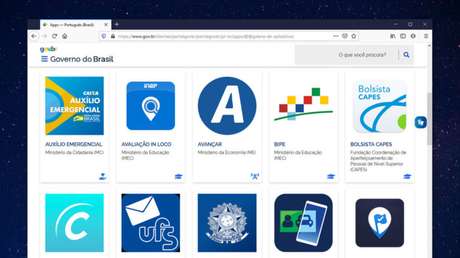
Public bodies are closer to being obliged to guarantee the provision of services through digital media. The change could occur with a bill approved by the Chamber of Deputies. The text brings together a series of guidelines to follow to reduce bureaucracy in the service of citizens.
The approved proposal is the substitute for the rapporteur, deputy Felipe Rigoni (PSB-ES), to PL 7843/2017, drawn up by 11 other deputies. The article presents principles to increase public efficiency to be followed by public bodies of the Union and the direct federal public administration, autarchies, foundations and public companies and, in the absence of specific regulations, state and federal bodies.
Among the dozens of guidelines are bureaucracy, the offer in a single platform of public services and the possibility of accessing these services through digital means. The text also establishes principles of accessibility for people with disabilities, adequate treatment for the elderly and promotion of the use of electronic signatures.
Under the project, public agencies should allow access to their services through widely accessible technologies. The article highlights that the low-income population or the inhabitants of rural areas, or the right of the citizen to opt for face-to-face assistance, cannot be harmed.
In addition, it is expected to authorize the issuance of certificates, certificates, diplomas and other documents by digital means and with the use of electronic signature. The project also determines the end of unnecessary requirements for citizens, such as the presentation of information already available by other public databases.
The proposal defines the structure of the digital government
The bill presented in the Chamber defines the components for the provision of public services in digital media. One of them is the National Public Service Base, a tool that will collect information on the services offered by each entity of the federation and that can be created by the federal government.
The text also deals with the User Services Charter, which is already presented on the websites of public agencies. However, it is the Digital Government Platforms that should cause more changes if the bill becomes law. This is because the text presents some rules for public service websites and applications.
The project indicates that they must have tools to request service and track delivery; scheduling and payment options, when needed; and user satisfaction survey. The text also determines that the digital channels of public organizations must present a panel with the number of applications in progress and concluded annually, the average time of attention and the degree of user satisfaction.
After the approval of the Chamber, the bill goes to be approved in the Senate and then to the sanction of President Jair Bolsonaro. If it becomes law, the rules will take effect after 90 days for federal agencies, 120 days for state and Federal District agencies, and 180 days for municipal agencies.
Project that requires digital public service is approved by the Chamber
See also:



